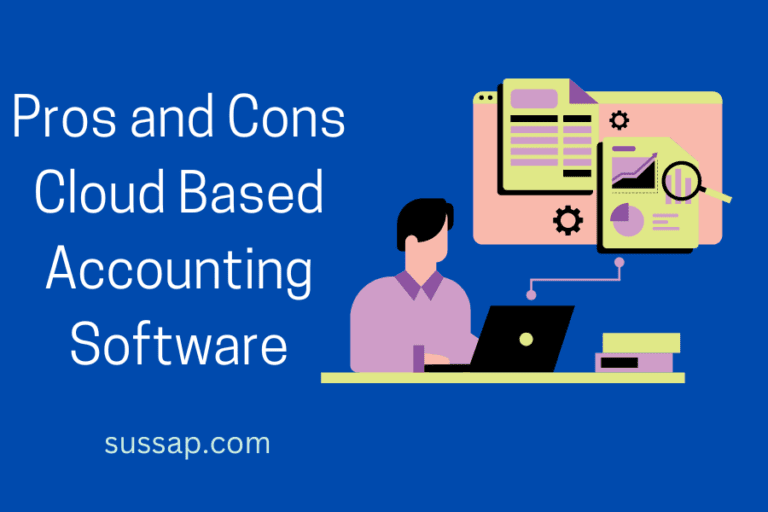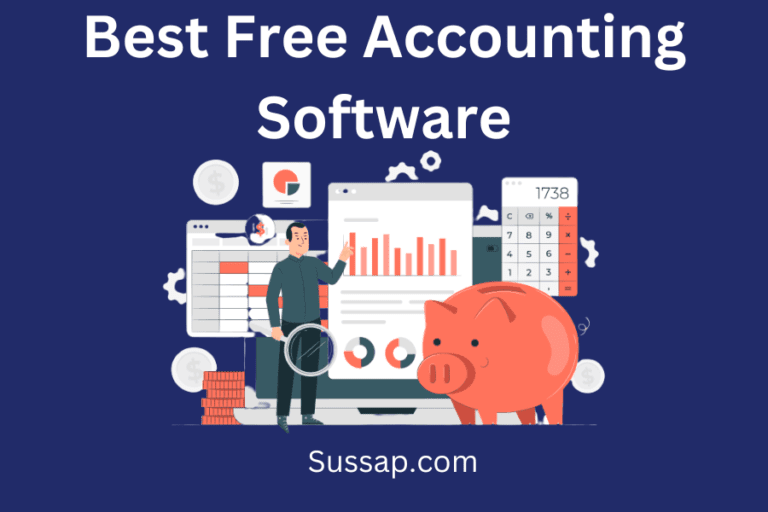Whether you’re a small business or a large corporation, your accounting software needs to be able of handling both routine and complex tasks.
It should also be easy to set up and use so that you can concentrate on running your company rather than hunting down accurate checks or staying up to date on your financials.
But choosing the right account software is no easy feat. So many different options are available that it can be difficult to know which ones will work for your business.
Moreover, each of these software choices has its own unique set of pros and cons, which makes it even more challenging to figure out the right one for your company.
To help you make the right choice, we’ve collected a list of the best business accounting software tips and techniques you need to know if you’re thinking about purchasing an accounting software suite.

Identify Your Business Needs
Identifying your company’s needs is the first and most crucial step in choosing the best accounting software. This involves evaluating the financial management tasks that you need the software to perform.
Tracking income and expenses, producing and distributing invoices, and comparing bank statements are some fundamental bookkeeping tasks that accounting software can assist with.
Before purchasing software, it’s critical to decide which features you require and do not require in order to avoid purchasing features that you won’t use.
The size and complexity of your business, the number of employees you have, the industry you operate in, and the level of financial reporting you need are all factors to take into account when determining your company’s needs. You might want to talk to your accountant or financial advisor to find out the specific accounting tasks you need to complete.
Figure out your budget
Accounting software comes in different price ranges, and the cost of the software often depends on the features it offers, the size of your business, and the level of support you need.
Before making a decision, it’s important to have a clear idea of how much you are willing to spend on accounting software. Consider your business size, projected growth, and the value that the software will add to your business operations.
A small business with only a few employees may not need the same level of accounting software as a larger business with more complex accounting needs.
It’s important to remember that cheaper is not always better when it comes to accounting software.
Free accounting software may lack essential features that your business needs or may not be scalable enough to accommodate your business growth. At the same time, you don’t want to overspend on software that includes features that you won’t use.
When evaluating the cost of different accounting software options, look beyond the initial purchase price. Consider the cost of ongoing support, upgrades, and training, as well as any additional costs for add-on modules or integrations.
By determining your budget upfront, you can narrow down your search to accounting software options that fit within your price range and provide the features and support that your business needs. This will help you make an informed decision and choose the best accounting software for your business.
Look for expert reviews and user reviews
Reviews from other users can provide valuable insights into the software’s strengths and weaknesses, and comparing different options can help you find the best solution for your business.
One way to find reviews is to check out the software provider’s website or online forums dedicated to accounting software.
You can also search for reviews on third-party websites such as Capterra, G2, or TrustRadius, which provide user reviews and ratings for different software solutions.
When reading reviews, pay attention to common themes or issues that other users have experienced. Look for reviews from users who operate businesses similar to yours or have similar accounting needs.
This will give you a better understanding of whether the software will be a good fit for your business.
Compare software features
When selecting accounting software, it is important to consider the features it offers. This is because different software comes with different features, and you want to choose one that has the features that your business needs.
Here are some key features to consider when selecting accounting software:
Accounts payable and receivable functions: These are important because they let you keep track of payments and payments made. You can use these tools to help organize your finances, identify opportunities for saving money, and avoid expensive mistakes.
Invoicing: Most accounting software includes invoicing functionality, allowing you to create and send invoices to customers. Look for software that allows you to customize invoices, track payments, and set up automatic payment reminders.
Expense Tracking: Expense tracking is an essential feature that allows you to keep track of business expenses and make sure that you are staying within your budget. Look for software that allows you to easily enter and categorize expenses, and generate expense reports.
Bank Reconciliation: Bank reconciliation is the process of matching your bank statements with your accounting records to ensure that they are accurate and up-to-date. Look for software that streamlines this process, making it easy to reconcile accounts and identify discrepancies.
Financial Reporting: Financial reporting allows you to track the financial health of your business and make informed decisions. Look for software that offers a range of financial reports, including balance sheets, income statements, cash flow statements, and more.
Payroll Processing: If you have employees, you may need accounting software that includes payroll processing functionality. Look for software that automates payroll calculations, generates pay stubs and handles tax withholdings and deductions.
Inventory Management: If you sell products, inventory management is an important feature to consider. Look for software that allows you to track inventory levels, receive alerts when stock is low, and generate reports on inventory activity.
Depending on your business needs, other features you may consider are multi-currency support, a mobile app, organizing income and expenses, and so on.
Look for quality customer support
One of the most important things when shopping for accounting software is to find a company with quality customer support. This is because it will help you avoid issues that will ultimately cost you time and money in the long run.
Here are some key factors to consider when researching customer support:
Availability: Make sure that the software provider offers customer support during hours that are convenient for you. Some providers may only offer support during regular business hours, while others may offer 24/7 support.
Communication Channels: Check to see which communication channels the software provider offers for customer support, such as phone, email, chat, or support tickets. It’s important to choose a provider that offers multiple communication channels to ensure that you can get help in a way that is convenient for you.
Response Time: Research the average response time for customer support inquiries. You want to choose a provider that responds to inquiries quickly to minimize any disruption to your business.
Quality of Support: Look for reviews or testimonials from other users about the quality of customer support offered by the provider. Are the support staff knowledgeable, friendly, and helpful? Do they provide clear and concise answers to your questions?
Check For User-Friendliness
Here are some factors to consider when evaluating the user-friendliness of accounting software:
Interface Design: The software should have a clear and intuitive interface design that makes it easy for users to navigate and find the features they need. A well-designed interface should also be visually appealing and easy on the eyes.
Accessibility: The software should be accessible to users of all technical levels. It should not require advanced technical skills to use or understand. The language used in the software should be easy to understand, and the instructions should be clear and concise.
Customization: The software should allow users to customize the interface to suit their needs. This can include customizing the layout, colors, and font size. The software should also allow users to customize the reports and statements that are generated.
Training and Support: The software should come with adequate training materials and support to help users learn how to use it effectively. This can include online tutorials, user manuals, and customer support.
Also, read accounting tips for small businesses.
Integration
Integration is an essential factor to consider, especially if you are already using other business software such as customer relationship management (CRM), enterprise resource planning (ERP), or project management software.
Integration is the ability of two or more software systems to communicate and share data with each other seamlessly. With integration, data can flow automatically between systems, eliminating the need for manual data entry, reducing errors, and improving data accuracy.
For instance, if you are using a CRM system to manage your customer interactions, you may want to choose accounting software that can integrate with it. This integration will allow you to transfer customer information, such as contact details, billing information, and sales history, from the CRM system to the accounting software automatically.
Similarly, if you are using project management software to track your projects’ progress, you may want to choose an accounting software that can integrate with it. This integration will allow you to transfer project expenses, such as labor costs and material costs, from the project management software to the accounting software automatically.
Integration can help you streamline your business processes, reduce duplicate data entry, and improve overall efficiency.
It can also help you get a more accurate and complete picture of your business’s financial health by consolidating data from different sources.
Therefore, when selecting accounting software, it’s important to choose one that can integrate with other software systems that you are already using. It will help you get the most out of your investment and make your business more productive and profitable.
Take a free trial before making a decision
It’s always a good idea to take a free trial of the accounting software before you make the final decision. You can use the trial to see if it’s what you want or not.
Also Read:






